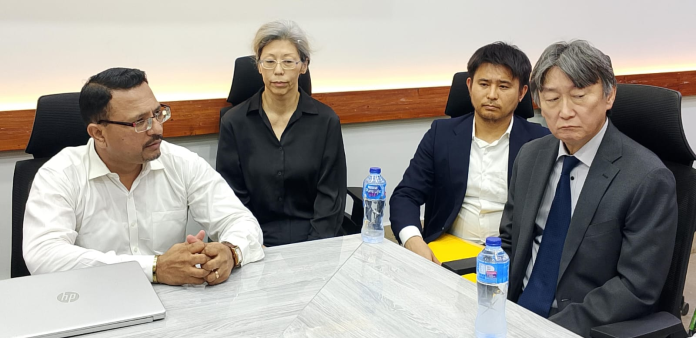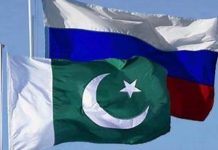Nazir Siyal
KARACHI: The Consulate General of Japan in Karachi organized an Official Development Assistance (ODA) Press Tour in which a group of journalists from various media houses participated.
The purpose of the ODA Press Tour was to increase the people of Pakistan’s awareness of Japanese Government’s assistance projects in Pakistan, thereby informing the local media about Japan’s contribution towards Pakistan’s development in key sectors such as education, healthcare sector and human security.
The journalists, accompanied by the Consulate staff, visited two project sites in Karachi that have benefited from Japan’s Grant Assistance for Grassroots Human Security Projects (GGP) and JICA’s Technical Cooperation.
GGP is a grant scheme of the Japanese Government, for the development projects aimed at improving the social well-being of the people at the grassroots level. Japan has funded more than 400 projects in Pakistan under the GGP since 1989.
The first stop was Disabled Welfare Association (DWA), located near Mazar-e-Quaid.
The DWA has been
providing vocational training to women with disabilities in Karachi since 2003, with a focus on underprivileged communities.
Through the GGP, Japan has provided new transport vehicles and vocational training equipment for low-income women with disability in Karachi in 2025.
Along with the ODA Press Tour, a handover ceremony was held, with the Consul General of Japan, HATTORI Masaru in attendance.
The second site visited by the group was the Women Skill Development Center, operated by Women Development Foundation Pakistan (WDFP), in Maripur, Karachi.
This site is part of JICA’s Technical Cooperation Project for Improvement of Livelihoods and Well-being of Female Home-Based Workers (FHBWs) in the Informal Economic Sector in Sindh Province (Light-F).
WDFP is an NGO that provides support to women domestic workers in Sindh and is one of the partner organizations for this technical cooperation.
This technical assistance aims to improve the livelihoods and welfare standards of the informal economy in Pakistan especially for domestic workers, many of whom are low-income women, thereby promoting equitable economic growth and human security in Pakistan.
The participants observed a Light-F training course, a toolkit that contributes to livelihood improvement and livelihood enhancement.

















